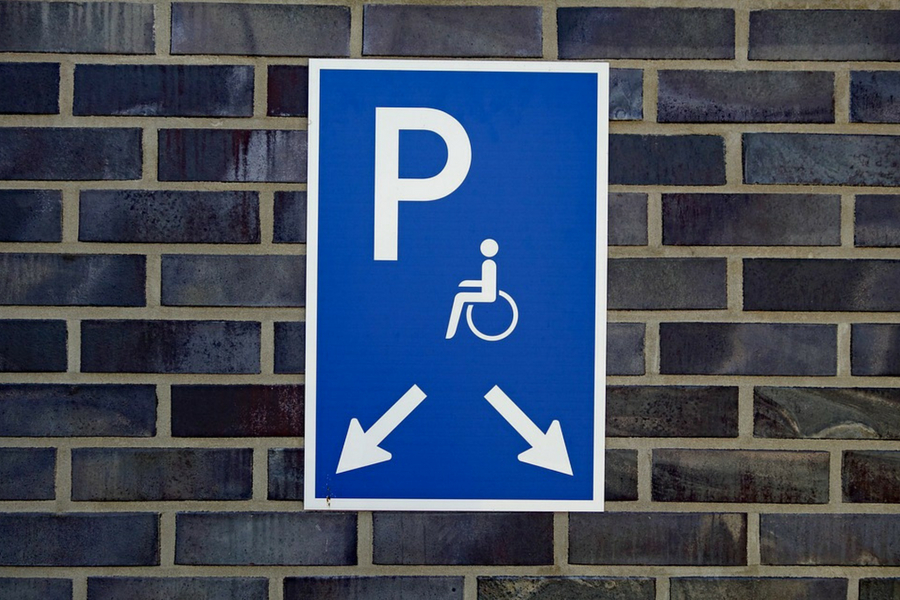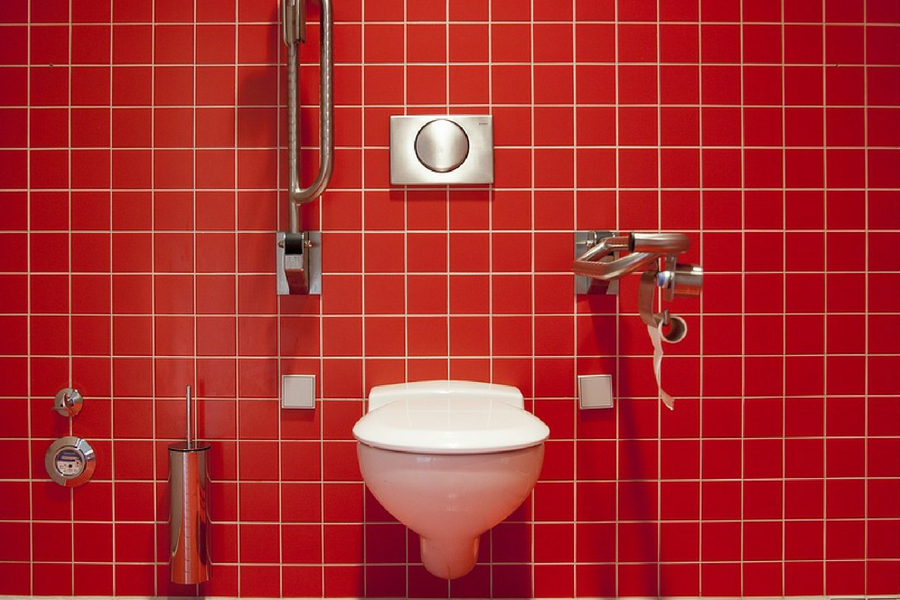Planning and Preparation for Accessible Events
When planning accessible events – whether a conference, exhibition, festival or celebration – there are a number of things to consider if you want to host an inclusive and accessible event. You’ve hired the venue, booked the catering, and lined up the speakers – but have you considered your guests with disabilities in these preparations? Here are some key factors to address with access in mind:
Parking
There need to be designated parking bays for delegates with disabilities. These need to be clearly marked, and within close proximity to the entrance. They should be wide enough to allow a driver or passenger to easily transfer from the vehicle into their wheelchari. If the parking spaces have been reserved, there needs to be a staff member available to assist in opening the space on arrival. They should have unobstructed access to the entrance, for example not needing to cross a parking island or up a curb. Outdoor areas should be easy to manoeuvre a wheelchair, walking aid or for a sight-impaired person to walk without obstacles or hazardous surfaces – flat but non-slip surfaces, not grass or stoned walkways.

Venue Entrance
If there are stairs to the entrance, then there should also be ramps or an elevator into the building. Ideally all delegates should enter through the same entrance, whether using a wheelchair or not, rather than being sent around to a back or service entrance.
In our own experience, we have had incidents where wheelchair-users need to use a back entrance which is usually used for deliveries, and sometimes through undesirable areas of a building such as where the trash is taken out, so are dirty or smell unpleasant, and are usually a long way around or a maze through other sections of the building to get to the desired area.
Registration/Welcome Desk and Staff
The registration or welcome desk needs to be at a height that is accessible for a person in a wheelchair to interact with the staff and complete registration. Consideration should be made for a support person as well. Staff should be prepared to treat all delegates equally and know how to meet any special needs or requests, or to communicate efficiently.
From our own experience, an important note is that staff should address the person with the disability as they would any other person, and not talk over them to the carer/assistant instead. If help is needed interpreting, this should come from the carer, but not just assumed by staff that the person with a disability is unable to understand or speak for themselves. Often the person in the wheelchair is ignored completely, and staff only speak to the carer or assistant pushing the chair.
Aisle Width, Seating & Roving Mics
The entire venue needs to be accessible, from the entrance, to the conference / meeting / banqueting hall. If the event area is on another level to the entrance, ramps or elevators need to be available and functioning, provide as direct access as possible, and clearly marked. Whether conference or banqueting style, aisles need to be wide enough for people using wheelchairs and/or service dogs to move freely. Seating areas need to allow for those using wheelchairs to be able have an unobstructed view of the speakers and any screens. If any wheelchair users will be presenting, an adjustable lectern should be used, or if participation from delegates is invited, roving mics should be available with staff members available to make sure they are provided when needed. In the case of blind delegates or other people using service dogs, there should be provision made for toilet areas for the dog, and provision of water.
For hearing impaired, seating should be available with a clear view of any interpreters at the podium. An audio induction loop should be available. For banqueting style or networking sessions, delegates should have access to the interpreters.
In our own experience, we have attended an expo that was aimed primarily at people with intellectual impairments, but also drew interest from people with physical disabilities as there is often an overlap. While parking and the entrance were accessible, the hall reserved for the expo was on an upper level that was only accessible by stairs. For us, staff were helpful in assisting us to carry the wheelchair and my son up the stairs, but many other attendees left immediately on arrival as they were not able to be helped up the two flights of stairs.

Refreshments
Refreshment stations should be accessible height for people using a wheelchair. Some wheelchair users may have full use of their hands, others may not, so this needs to be considered with the types of refreshments served – finger foods may be easier for some as opposed to foods that require utensils, and some people may need to use different types of cups or straws to drink. If it is an outdoor event, paper plates on a wheelchair table might be tricky if it is windy, so sturdier plates might be better.
Toilets
Wheelchair accessible toilets need to be conveniently located and clearly marked or signposted. Wheelchair users need to be able to access them easily without needing to navigate through difficult areas of the venue. They should be able to easily enter and exit through the doors and they should be large enough to manoeuvre a wheelchair and themselves inside to use the facilities. Grip rails should be installed and importantly, an emergency bell or alarm should be fitted. Wash basins, dryers and mirrors should be at the correct height. In the case of a person using a wheelchair who needs a carer to assist with bathroom facilities, adequate space and clean changing facilities should be available.

Event Specific Considerations
Outdoor Festivals
The most common challenge faced with outdoor festivals is having to push or drive a manual or power wheelchair over grass, cobblestones, or other uneven or difficult terrain. Public portable toilets are also a challenge unless specific wheelchair-access portable loos are provided. Access to food stalls is also generally a problem as food trucks etc. are often too high for a person in a wheelchair to communicate with the vendor or to see the food on sale.
Exhibitions and Expos
In addition to general accessibility needs as outlined above, consideration needs to be made that displayed items are at a height that makes them visible for a person using a wheelchair as well. For sight impaired visitors, displaying items in a way that can be touched and felt, with descriptive plaques that include Braille descriptions. Clear signs and descriptions should be displayed, and hearing loops for hearing impaired visitors for any presentations or commentaries.
Banquet Dinners
As briefly mentioned before, pathways between tables should allow mobility-impaired guests to move freely without obstruction. Table height should accommodate wheelchair users. Access to an interpreter during any speeches or presentations, and a hearing loop. Unobstructed view of any speakers or presentations, especially should other delegates need to be standing for any part of the presentation, wheelchair-users’ view should not be obstructed in the process.
Team Building Workshops
The focus on planning a team building workshop would need to be both on venue and activities provided. An obstacle course for example won’t be suitable for delegates with disabilities, but other activities with a service provider that is willing to adapt the way they do business may work perfectly. River rafting is an option where able-bodied and disabled participants can team up in a boat, and nature parks with walking trails that have boardwalks and Braille trails, are all possible regardless of ability.
When starting out in the preparation phase for anything where access is a consideration, whether it be planning an event, or launching a new activity or establishment, consider consulting with people who have disabilities to assist and advice in the process. We continue to highlight that while following a set of guidelines goes a long way in improving access, first hand knowledge and experience from people who will be using the facilities is still first prize.
